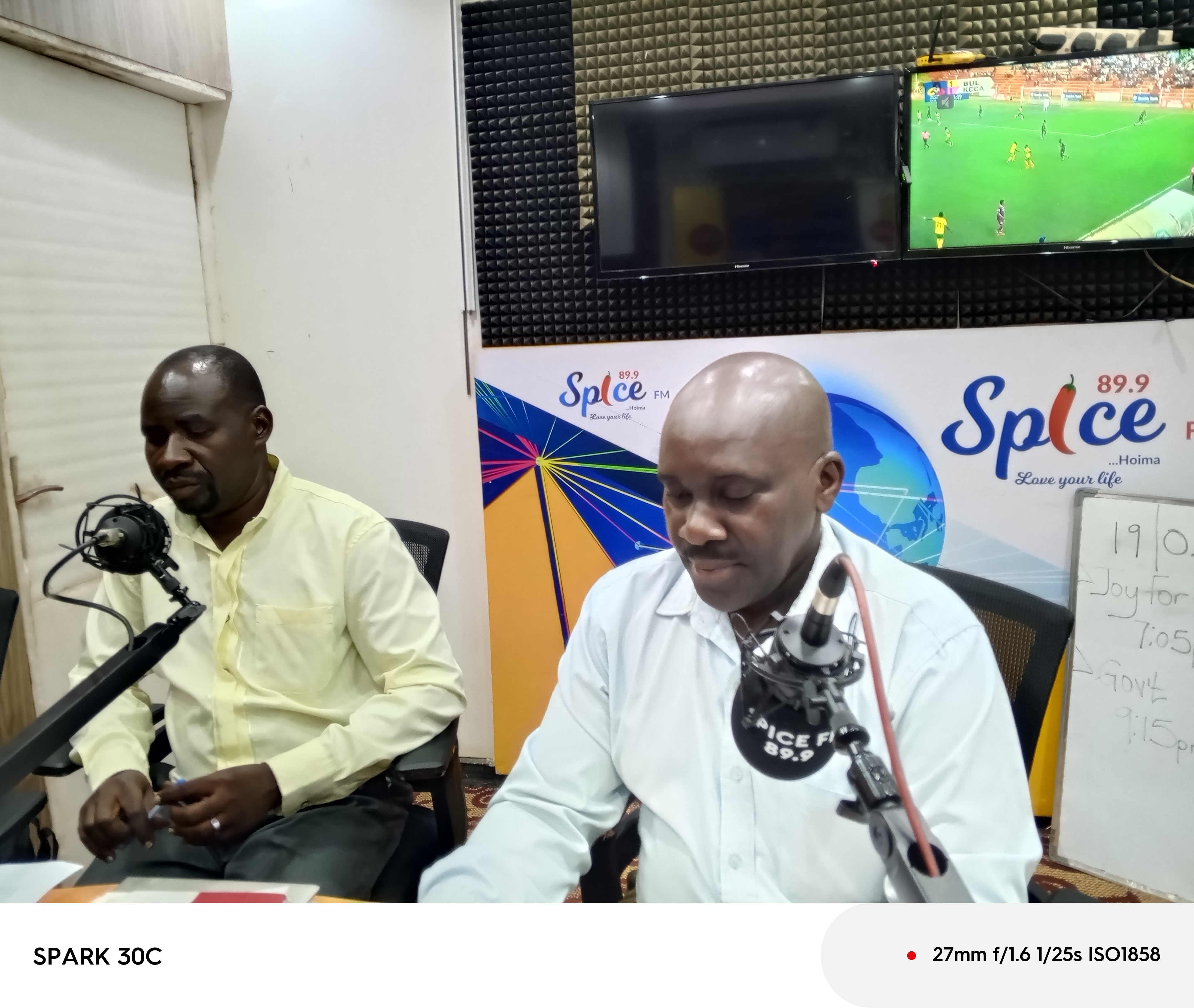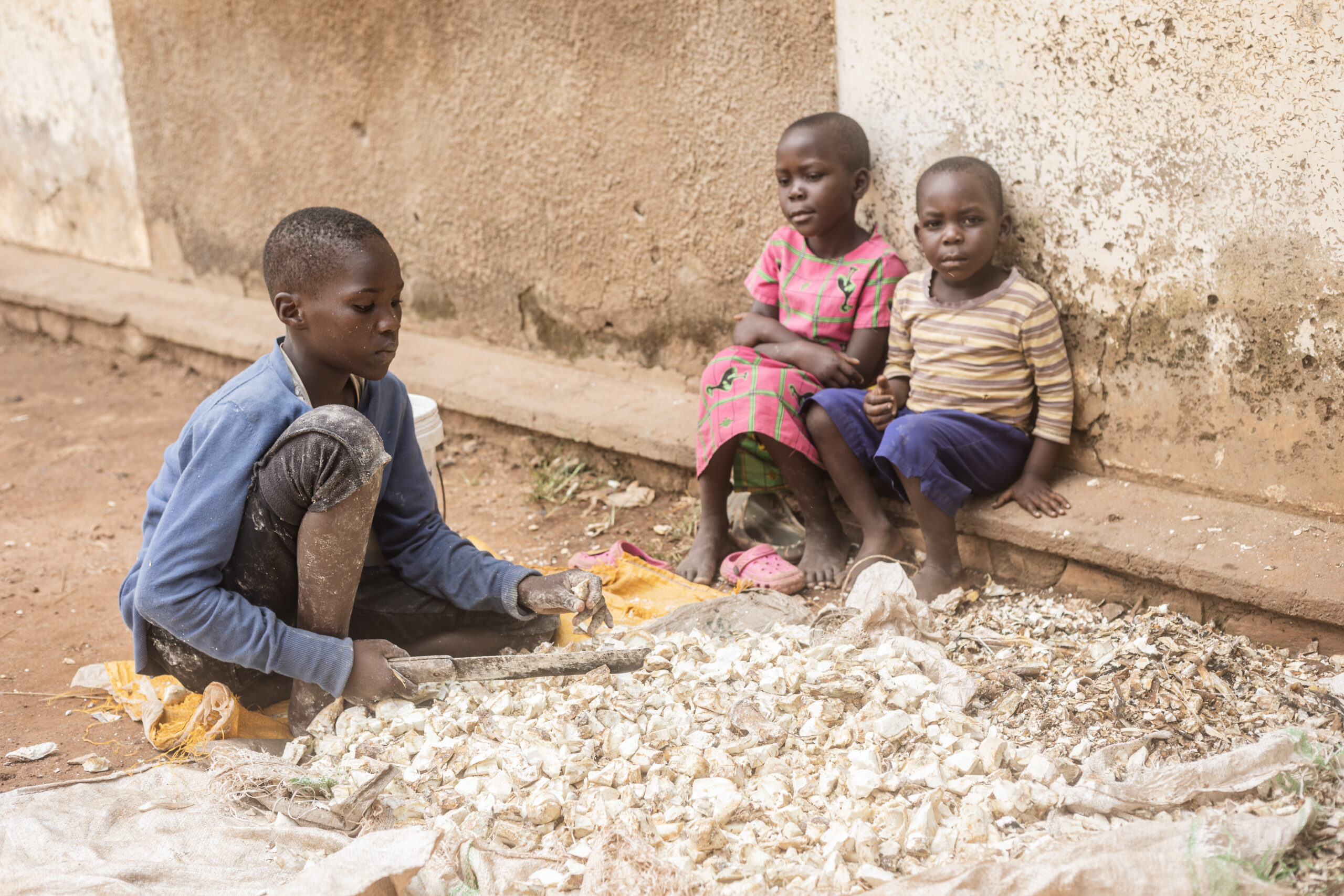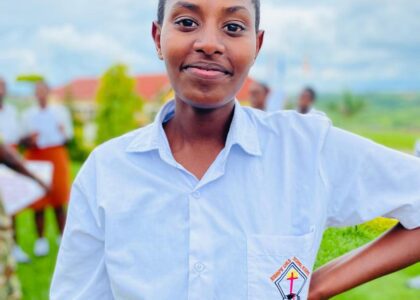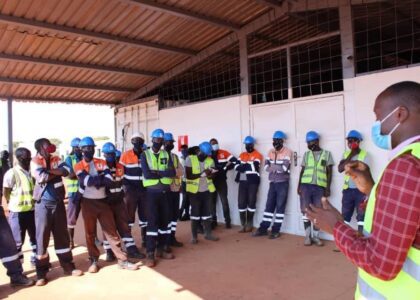Joy for Children Uganda, through the Uganda Secondary School Expansion Project (USEEP) , has been actively engaging communities in a series of media engagements aimed at promoting education and encouraging parents and guardians to prioritize sending their children to school. Recognizing that education is a fundamental tool for breaking cycles of poverty and protecting children from harmful practices such as child marriage, JFCU has leveraged radio talk shows as a powerful platform to reach and educate communities on the importance of keeping children in school.
JFCU conducted radio talk shows in Hoima, Kamwenge, Kagadi and Kyegegwa districts, focused on raising awareness on key barriers that prevent children, especially girls, from accessing education. The discussions highlighted the financial challenges that many families face, leading to school dropouts, as well as societal norms that prioritize early marriage over education for girls.
These talk shows were moderated by education experts, community leaders, and educators who shared share insights on the long-term benefits of education and to dispel myths that undermine the value of keeping children in school. The conversations reinforced the message that education is not only a right but also an essential foundation for a brighter future, improving career prospects and reducing vulnerability to exploitation.
Throughout the engagements, parents and community members were encouraged to take responsibility in ensuring their children complete their education. Many callers expressed concerns over school-related costs, and discussions provided possible solutions such as government support programs, bursaries, provision of schools infrastructures in order to reduce the long distances children face while going to attend secondary education, and community-led initiatives that aid underprivileged families.
Educators who participated in the talk shows emphasized that even with financial struggles, there are ways to support children’s education through local school programs and community partnerships. The need for government intervention in reducing hidden school costs was also a major topic of discussion, with many participants calling for increased support in rural areas.
There was also a discussion on the dangers of child marriage and how it directly hinders education. Many parents, particularly in rural areas, still view early marriage as a solution to financial hardship. The talk shows sought to shift this perception by demonstrating how education can provide a sustainable path out of poverty, equipping girls and boys with the skills and knowledge to secure better opportunities in the future. Survivors of child marriage shared their personal experiences, highlighting the struggles they faced due to being denied education, and urged parents to make better choices for their daughters.
The open interaction during the live radio sessions was remarkable, with numerous calls from listeners seeking guidance on how to enroll children in school, access support programs, and prevent school dropouts. The listeners expressed their appreciation for the initiative, acknowledging that such discussions were crucial in changing attitudes towards education. The campaign also extended to social media platforms, where Joy for Children Uganda continued engaging audiences by sharing information, success stories, and practical steps that families can take to ensure their children remain in school.
Joy for Children Uganda remains committed to expanding these efforts by strengthening collaborations with schools, policymakers, and community leaders to ensure every child, regardless of background, has the opportunity to complete their education. The organization calls upon parents, guardians, and stakeholders to take an active role in supporting children’s education, advocating for policies that reduce barriers to school access, and creating an environment where every child can thrive academically.






